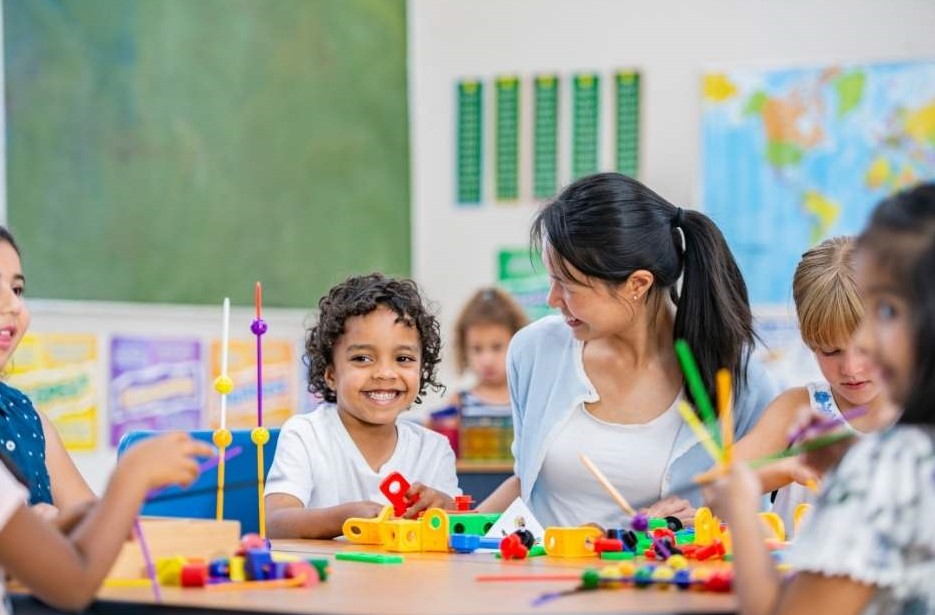Critical Thinking: Homeschool Guide to Questioning Everything

Welcome to the homeschool guide for raising little detectives! In a world filled with fake news, conspiracy theories, and questionable TikTok trends, it’s more important than ever to teach our children the art of critical thinking. In this article, we’ll explore how to nurture their natural curiosity and skepticism, and encourage them to question everything (well, maybe not EVERYTHING – we still need them to believe in the tooth fairy). So grab your magnifying glass and put on your thinking caps, because we’re about to dive into the world of critical thinking like never before. Let the investigations begin!
Key Concepts of Critical Thinking for Homeschoolers
Critical thinking is an essential skill for homeschoolers that goes beyond just learning facts and figures. It involves questioning assumptions, analyzing information, and making informed decisions. Here are some key concepts to help you become a critical thinking ninja:
- Skepticism: Don’t believe everything you read or hear. Question everything, even your own beliefs. Just because something is popular doesn’t make it true. Remember, just because everyone else is jumping off a bridge doesn’t mean you should too.
- Logic: Use your brain, not just your emotions. Don’t let your feelings cloud your judgment. Think through things logically and follow the evidence where it leads. Just because you want something to be true doesn’t make it so.
- Research: Don’t just take things at face value. Dig deeper, do your own research, and consider multiple sources of information. The internet is a vast sea of knowledge, but also a swamp of misinformation. Use your critical thinking skills to separate fact from fiction.
By practicing these key concepts of critical thinking, you’ll be better equipped to navigate the challenges of homeschooling and the world at large. So put on your thinking cap, sharpen your wit, and get ready to tackle the mysteries of the universe like a true critical thinking superhero!

Developing Strong Analytical Skills through Questioning
So you want to enhance your analytical skills, huh? Well, grab a seat and get ready to question everything in sight!
First things first, practice asking questions like you’re a detective trying to solve a mystery. Push yourself to dig deeper and uncover the hidden truths beneath the surface.
Secondly, challenge yourself to question assumptions and conventional wisdom. Don’t just accept things at face value – be bold and daring in your pursuit of knowledge.
Lastly, don’t be afraid to ask “why” a million times if you have to. Embrace your inner toddler and keep questioning until you reach the core of the matter. Remember, curiosity didn’t kill the cat – it made it a top-notch analytical thinker!

Implementing Socratic Questioning Techniques in Homeschool Curriculum
When incorporating Socratic questioning techniques into your homeschool curriculum, remember to keep it fun and engaging for your children. One way to do this is to turn the questioning into a game. Have a “Socratic Question of the Day” where your kids can earn points or rewards for thoughtful answers.
Encourage critical thinking skills by asking open-ended questions that require more than just a yes or no answer. Get your kids thinking about the reasoning behind their responses and challenge them to defend their thoughts with evidence and logic.
Don’t be afraid to incorporate Socratic questioning into every subject of your homeschool curriculum. Whether you’re exploring history, math, science, or literature, there are always opportunities to spark curiosity and encourage deeper thinking through thoughtful questioning.
Remember that the goal of Socratic questioning is not to have all the answers, but to inspire curiosity and stimulate critical thinking. So sit back, relax, and enjoy the journey of exploring new ideas and perspectives with your children through the art of Socratic questioning.

Encouraging Independent Thought and Inquiry in Education
Imagine a world where students are encouraged to think outside the box, question everything, and challenge the status quo. That world is not just a dream, it can be a reality in education!
By promoting independent thought and inquiry in schools, we are giving students the tools they need to become critical thinkers, problem solvers, and innovative leaders. Here are a few ways we can foster independent thought and inquiry in education:
- Encourage Curiosity: Teachers can spark students’ curiosity by posing thought-provoking questions, encouraging them to explore different perspectives, and challenging them to think creatively.
- Embrace Debate: Classroom debates can help students develop their critical thinking skills, enhance their communication abilities, and learn how to respectfully disagree with others.
- Value Diversity: By exposing students to a variety of viewpoints, cultures, and ideas, we can help them appreciate the complexity of the world and become more open-minded individuals.
So let’s revolutionize education and empower our students to think independently, question everything, and never stop seeking knowledge!

Challenging Assumptions and Biases in Learning
Have you ever stopped to think about the assumptions and biases that may be holding you back in your learning journey? It’s time to challenge those preconceived notions and break free from the constraints they place on your growth!
One key assumption that often trips us up is the belief that we have to be naturally talented in order to succeed in learning. But in reality, talent is just a small piece of the puzzle! With dedication, hard work, and a willingness to learn from our mistakes, anyone can make progress in their learning goals.
Another common bias we face is the idea that certain subjects are “too hard” for us to grasp. But who says you can’t conquer calculus or master a new language? Challenge yourself to push past these self-imposed limitations and embrace the unknown with an open mind!
Remember, learning is all about growth and pushing yourself beyond what you thought possible. So go ahead, challenge those assumptions and biases holding you back, and watch as your learning journey takes off in ways you never imagined!
Teaching Children to Critically Evaluate Information and Sources
It’s never too early to teach your little ones the importance of critically evaluating information and sources. Here are some fun and creative ways to help them develop this essential skill:
- Encourage them to ask questions. Remind them that not everything they read or hear is true, and it’s important to question the information presented to them.
- Teach them about bias. Help them understand that different sources may have different biases and that it’s important to consider multiple viewpoints before forming an opinion.
- Play the “Fact or Fiction” game. Present your child with various statements or articles and ask them to determine whether they are fact or fiction. This can help them practice discerning between reliable and unreliable sources.
Remember, the goal is to empower your children to think critically and make informed decisions. By teaching them these skills early on, you’re setting them up for success in a world filled with misinformation and fake news. Plus, who knows, maybe one day they’ll be the ones fact-checking you!
Fostering a Culture of Curiosity and Intellectual Growth in Homeschooling
Homeschooling is a wild ride, isn’t it? One day you’re teaching your child basic arithmetic, and the next day you’re diving into a full-blown science experiment that may or may not result in a kitchen explosion. But hey, that’s all part of the fun! However, if there’s one thing I’ve learned on this homeschooling journey, it’s the importance of fostering a culture of curiosity and intellectual growth in our homes.
So how do we do it? Here are a few tips to keep those young minds engaged and eager to learn:
- Encourage Questions: No question is too silly or too outlandish when it comes to learning. Encourage your child to ask questions, no matter how wacky they may seem. Who knows, their question about why the sky is blue could lead to a deep dive into the science behind it!
- Explore Diverse Topics: Don’t just stick to the basics – branch out and explore different subjects with your child. Whether it’s art history, robotics, or even ancient civilizations, there’s a whole world of knowledge waiting to be discovered!
Remember, fostering a culture of curiosity doesn’t have to be a daunting task. Take it one day at a time, embrace the chaos, and watch as your child’s thirst for knowledge grows exponentially. Who knows, maybe one day they’ll become the next Einstein - just hopefully with fewer kitchen explosions along the way!
FAQs
What is critical thinking and why is it important for homeschoolers?
Critical thinking is the ability to think logically and rationally, questioning assumptions and beliefs rather than accepting them blindly. It is important for homeschoolers because it helps them develop independent thinking skills and the ability to evaluate information and make informed decisions.
How can homeschoolers incorporate critical thinking into their curriculum?
Homeschoolers can incorporate critical thinking into their curriculum by encouraging children to ask questions, analyze information, and consider different perspectives. They can also introduce activities that challenge students to think creatively and problem solve.
What are some practical tips for teaching critical thinking to homeschoolers?
Some practical tips for teaching critical thinking to homeschoolers include encouraging open-mindedness, promoting discussions and debates, and providing opportunities for students to practice analyzing and evaluating information. It is also helpful to model critical thinking skills yourself and to foster a curiosity about the world.
How can critical thinking skills benefit homeschoolers in the long run?
Critical thinking skills can benefit homeschoolers in the long run by improving their academic performance, boosting their problem-solving abilities, and preparing them for success in the workforce. By questioning everything and thinking critically, homeschoolers can become more confident and capable individuals.
What are some resources or materials that homeschoolers can use to enhance their critical thinking skills?
Some resources that homeschoolers can use to enhance their critical thinking skills include books on logic and reasoning, online courses in critical thinking, and educational games that require strategic thinking. Additionally, participating in activities such as puzzles, brain teasers, and experiments can help develop critical thinking skills.
Don’t be a Sheep, Be a Critical Thinker!
Congratulations on completing this homeschool guide to questioning everything! Remember, it’s not about being difficult or combative, but about being curious and discerning. So go forth, question everything, and never stop thinking critically. Who knows, you might just uncover some mind-blowing truths along the way. And hey, if all else fails, just blame it on your newfound critical thinking skills. Happy questioning!





